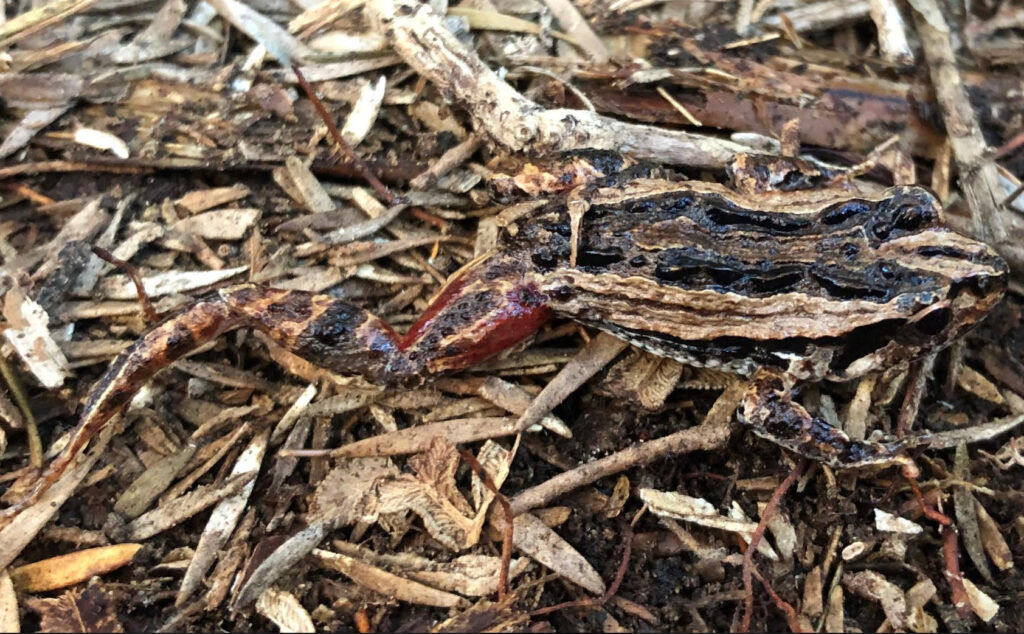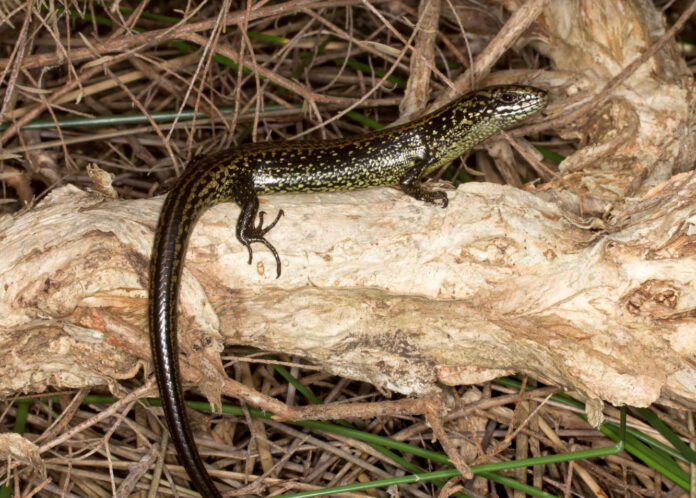A fauna diversity survey conducted by City of Cockburn Council has confirmed that local Council-managed conservation reserves are positively teeming with wildlife.
Council says the results confirm that management efforts by the City in partnership with community stakeholders is paying off for local wildlife.
A diverse range of native fauna, including six species of micro-bat, was detected during zoological surveys at Bibra Lake and Yaakan Park.
The survey, conducted independently for the Council in November and December 2022 by FaunaTrack, also confirmed a diverse array of reptiles including four species of conservation-significant skink, plus key species such as Carnaby’s and Forest Red-tailed Black Cockatoo, a range of conservation significant and migratory waterbird, and the locally significant Quacking Frog, Quenda and Brush-tailed Possum.
Six of a possible nine species of insectivorous micro-bat, including the locally significant Greater Western Long-eared Bat rarely detected in the region, were detected in the reserves, a resounding result aided by Council’s installation of more than 50 bat nesting boxes in recent years.
The survey found the reserves contain areas of habitat in good condition.
Council Acting Head of Sustainability and Environment, Rory Garven said the survey results were great news.
“Community and stakeholder collaboration is fundamental to the City’s success in managing these two reserves. These long-term partnerships help us all make a real difference to our urban biodiversity,” Mr Garven said.
In the past 12 months, 370 community members attended 12 public events held by the Rehabilitate Roe 8 project, managed by Council on behalf of Main Roads WA.
In the past five years, 250,000 seedlings have been planted in the Roe 8 Corridor to provide a continuous habitat between Bibra Drive and Stock Road, enabling an ecological connection to Bibra Lake and Yaakan Park for native fauna.
Mr Garven said the City was in constant communication with The Wetlands Centre Cockburn and the Friends of Bibra Lake South Bank to achieve its management objectives.

“We have recently partnered with Murdoch University and the local community to install 160 Black Cockatoo habitat trees in Bibra Lake this winter,” he said.
The survey report made several recommendations to help guide the City’s ongoing management of the much-loved reserves which contain numerous habitats including Banksia/Eucalypt low open forest, Eucalypt rudis open forest, Melaleuca pressiana low open forest, and low-lying Banksia woodland/dampland.
“The City has a range of well-established methods to manage Bibra Lake and Yaakan Park. This includes feral animal, fire, dieback and weed management,” Mr Garven said.
“Regular fauna surveys inform best practice to help us sustain and improve our habitats and the fauna that call them home, for future generations.
“The City’s Environment and Sustainability teams will assess the report’s recommendations as we strive to maintain and improve these vital habitats and build on biodiversity in our urban settings.”
Council manages the Bibra Lake and Yaakan Park reserves which form part of Beeliar Regional Park.
Bibra Lake and Yaakan Park projects:
- Off grid bird waterer and seven native bee hotels installed in the Roe 8 Corridor
- Annual dieback mapping, public education and ongoing maintenance of boot cleaning stations at Yaakan Park. Dieback has not been detected at Yaakan Park or Bibra Lake
- Bi-annual feral animal control program for foxes, cats and rabbits. In the most recent program nine foxes were removed. Rehabilitate Roe 8 removed seven foxes, two cats and 12 feral beehives in the past year
- Annual weed mapping and removal, which has created areas where migratory Rainbow Bee-eaters have successfully nested
- More than a hectare of invasive fig trees removed from Bibra Lake dampland habitat, enabling the regeneration of native species
- Public bird nesting box workshops will be held in June and a bat nesting box workshop is planned for later this year.


